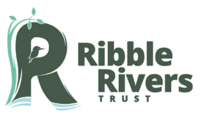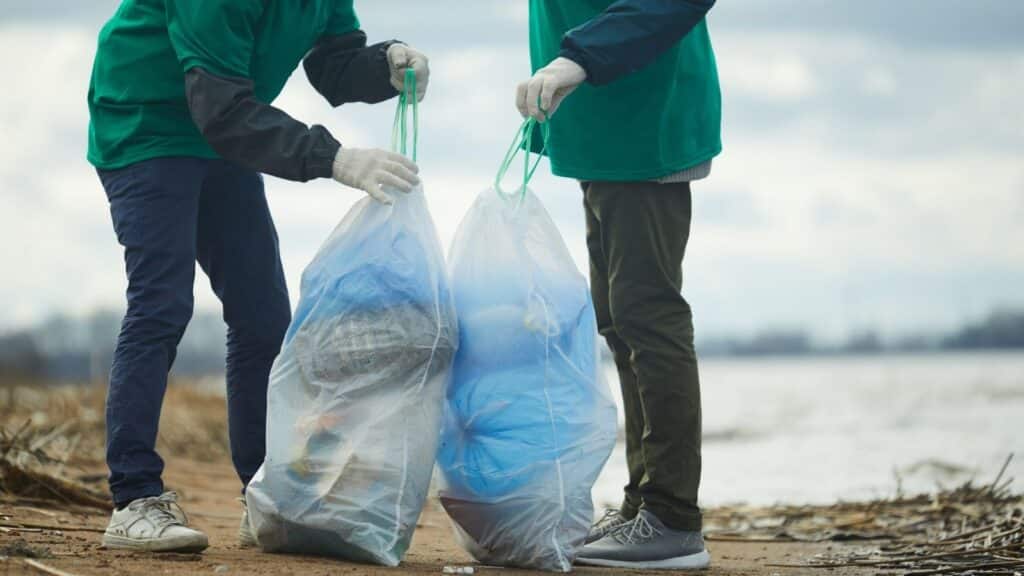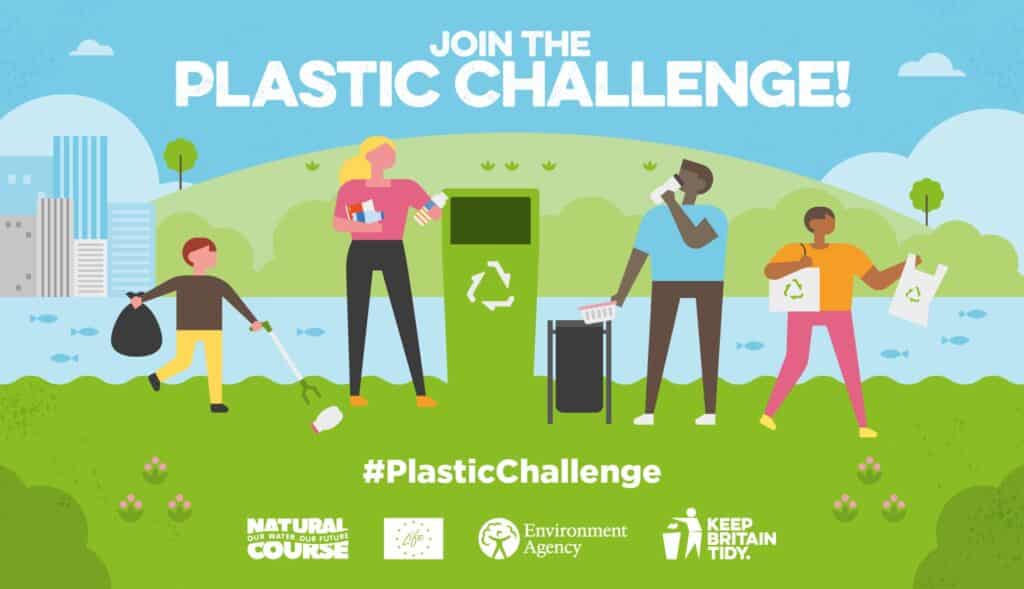Blackburn with Darwen residents encouraged to take the Plastic Challenge this August to tackle plastic pollution
New research has revealed that many people in Blackburn with Darwen and across the North West might not be aware that plastic litter in towns and cities can end up in the Irish Sea, harming the environment and marine life.
A survey conducted by YouGov showed that only one-third (32%) of people surveyed in the North West think that marine plastic comes from overflowing bins in towns and cities and only 43% of people think that plastic litter dropped inland ends up in the sea.
Keep Britain Tidy CEO Allison Ogden-Newton commented: “Our new research seems to suggest that many people don’t realise their behaviour inland can have an impact on marine life, sometimes many miles away. However, littered plastic and items flushed down the loo can end up in rivers where they travel to the sea.
“There appears to be a disconnect between our behaviour and the impact on the environment, but that means we all have the power and opportunity to make real and positive change. Even better, we only need to take small and simple steps to have a huge impact.”
Keep Britain Tidy, supported by Blackburn with Darwen Borough Council, is launching the Plastic Challenge in August to encourage residents of the borough to reduce, reuse, recycle and responsibly dispose of their plastic.
Residents are encouraged to sign up to the challenge to receive weekly emails throughout August with information, guidance and support and be in with the chance of winning some plastic-free goodies to help them start out on their journey to reduce plastic pollution.
Councillor Jim Smith, Executive Member for Environment at Blackburn with Darwen Borough Council, said: “TV programmes like the BBC’s Blue Planet documentary have helped to raise awareness of marine plastic pollution, but as this research has highlighted, it’s not widely known that plastic litter from our streets, and plastic waste flushed down our loos, is adding to the problem. As well as that, plastic pollution can also block sewers and contribute to flooding.
“The Plastic Challenge campaign encourages people to reduce the amount of plastic they buy, and ensure that plastic is disposed of or recycled correctly. We hope that residents of Blackburn with Darwen will sign up to the campaign and the local litter picks, and help to prevent plastic pollution from entering the Irish Sea and endangering marine wildlife.”
Residents are encouraged to look out for the many litter picking and river clean events throughout August or to grab a litter picker and bag and help clean up their community.
Blackburn with Darwen Borough Council provide free litter picking kits to residents so they can help keep their community tidy and prevent plastic from entering the river and the ocean. People can request kits by visiting their website.
Local groups from Keep Darwen Tidy and the Noorul Islam Mosque will be running litter pick events and the Ribble Rivers Trust will host four river cleans throughout August. Keep Blackburn Tidy will be encouraging people to sign up to the Plastic Challenge.
Some 2 million tonnes of plastic enters the sea in the UK by travelling down rivers. This can have a devastating effect on marine life. Scientists recently found that 100% of animals that had washed up on British shores had plastic in their stomachs.*
Globally, plastic kills over one million sea birds in addition to 100,000 sea mammals, turtles and fish every year.**
The YouGov survey showed that most people (72%) believe that plastic ends up in the ocean because people dropped it on the beach, while 64% are aware that it can come from the fishing industry (e.g. nets, hooks etc.).
The survey was conducted as part of a collaboration between Keep Britain Tidy, the Environment Agency and Natural Course in a project aimed at connecting the dots between our use of plastic and the impact on marine life in the North West.
* Nelms, S.E., Barnett, J., Brownlow, A. et al. Microplastics in marine mammals stranded around the British coast: ubiquitous but transitory?. Sci Rep 9, 1075 (2019)
* Evening Standard: UK plastic pollution crisis: Every seal, dolphin and whale washed up on British shores had plastic in their stomachs, report says
** United Nations Ocean Conference (2017) ‘Factsheet: Marine Pollution
** Greenpeace Plastics Report: Trashed (2021)



